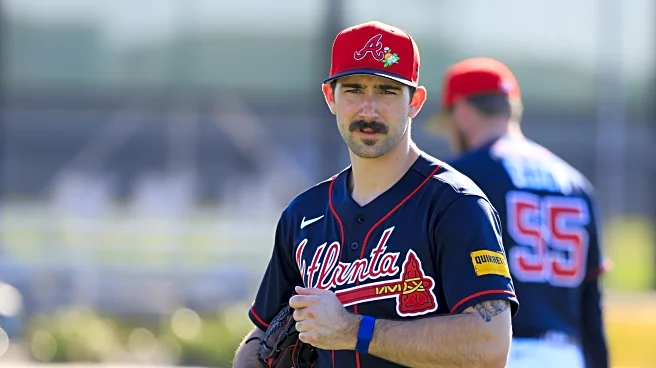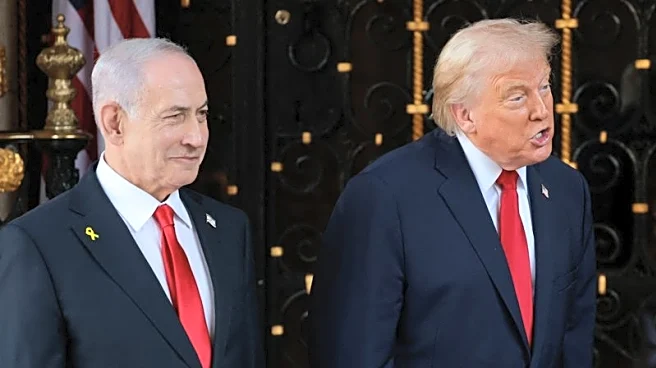What's Happening?
Claudia Cardinale, a celebrated Italian actor known for her roles in iconic European films of the 1960s and 1970s, has died at the age of 87. Cardinale starred in over 100 films and television productions, gaining fame for her portrayal of youthful purity in Federico Fellini's '8½' alongside Marcello Mastroianni in 1963. Her notable performances also include roles in Luchino Visconti's 'The Leopard' and Sergio Leone's 'Once Upon a Time in the West.' Cardinale began her career after winning a beauty contest in Tunisia, which led her to the Venice Film Festival and subsequently to the Italian film industry. Despite her success in Hollywood, Cardinale remained committed to European cinema, refusing exclusive contracts with American studios.
Why It's Important?
Claudia Cardinale's passing marks the end of an era for European cinema, where she was a prominent figure alongside other legendary actors like Sophia Loren and Brigitte Bardot. Her work contributed significantly to the cultural exchange between European and American film industries during the mid-20th century. Cardinale's refusal to conform to Hollywood's demands highlights the importance of artistic integrity and the preservation of cultural identity in the global entertainment industry. Her legacy continues to inspire actors and filmmakers worldwide, emphasizing the value of diverse storytelling and international collaboration.
What's Next?
While Claudia Cardinale's death is a significant loss to the film industry, her extensive body of work will continue to be celebrated and studied by film enthusiasts and scholars. Retrospectives of her films may be organized, and her contributions to cinema will likely be honored at upcoming film festivals. The industry may also reflect on her impact on women's roles in film and her advocacy for women's rights, potentially influencing future projects and discussions on gender equality in entertainment.
Beyond the Headlines
Cardinale's career offers insights into the challenges faced by actors who navigate between different cultural and linguistic landscapes. Her experience underscores the complexities of maintaining artistic authenticity while achieving international success. Additionally, her role as a goodwill ambassador for UNESCO highlights her commitment to social issues, particularly women's rights, which remains a relevant topic in today's global discourse.











